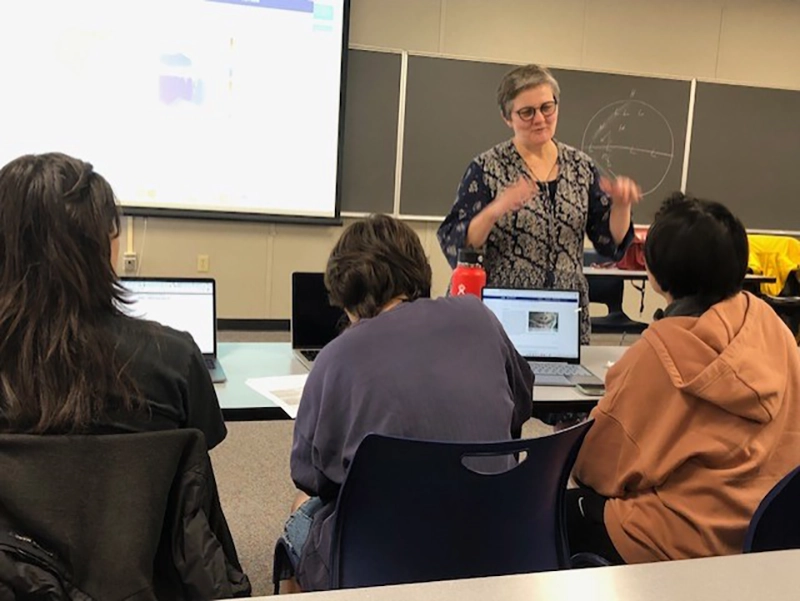Silke Severmann, associate professor in the Department of Marine and Coastal Sciences, teaches the introductory course in oceanography at Rutgers. Her role in this first-year seminar is to introduce students to the application of technologies used in ocean observing systems.
She helps undergraduates understand the relationships among the biological, physical, chemical and geological features of different regions of the world’s oceans. And she’s doing this by engaging her students in the exploration of the worlds’ ocean and understanding complex oceanographic topics using scientific data.
“When scientists go in the lab, field or observe the ocean remotely they collect numbers – measurements of something,” says Severmann. “These data are typically displayed graphically to visualize patterns, but doing so requires data literacy and a lot of practice.”
“My goal is to find innovative ways for my students to become experienced at examining large data sets through graphs to identify and interpret patterns so that they can make new discoveries,” adds Severmann.
Severmann is participating in a project called Data Labs, funded by the National Science Foundation (NSF) to develop new opportunities to engage undergraduate students in authentic data experiences using real-world datasets to teach geoscience processes.
Several programs, like the NSF’s Ocean Observing Initiative (OOI), collect large volumes and variety of data with increasing speed, thus transforming ocean observing science. These data streams require interdisciplinary and ultimately new workforce skills to feed the STEM enterprise.
To meet the demand for a STEM and data science literate workforce, scientists, statisticians and educators are working together to build educational applications focused on large, multi-instrument, multi-site datasets that improve undergraduate student engagement in the geosciences in an effort to build data literacy and critical thinking.
Rutgers, in partnership with Stockton University, City University of New York Queens College, Hillsborough Community College and the Science Education Resources Center at Carlton College, was new NSF grant worth $465,011 to develop undergraduate classroom activities for use in small and or large lecture courses, online classes or laboratories, for both two- and four-year colleges and universities.
Rutgers leads on the grant, Janice McDonnell and Sage Lichtenwalner from in the Department of Marnine and Coastal Sciences, will work collaboratively to continue developing an online open-source Lab Manual. This tool assists students in visualizing patterns, dealing with anomalous data, metadata, synthesizing complex datasets, graphs and lines of reasoning. Lab Manual is currently used by 182 members of the Data Labs community, including Professor Brooke Love at Western Washington University and Professor Ann Cleveland at the Marine Maritime Academy in Maine.
The grant will expand and diversify the user base of the manual to colleges that usually don’t participate in large scale NSF projects, like the OOI, and provide new tools for building critical thinking and data literacy skills in undergraduate students.
Original Article at Rutgers Newsroom

